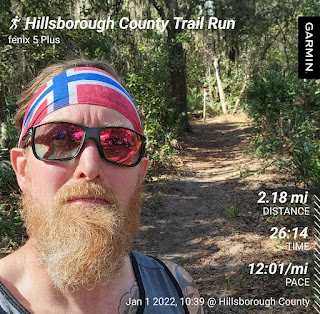Fitness Goes Social


All politeness aside, it sucks to get out on a long awaited dive and having your buddy signal to you that you need to end your dive because they are almost out of air when you still have the majority of yours left.
Most divers are air hogs when they are first getting started. I was a PADI Master Scuba Diver Trainer back in the day, and one of the first things that typically comes up with newer divers is how they can get their air to last longer. There is hope!
First and foremost, improve your physical fitness! The better your cardio fitness is, the longer your air will last. If you are in shape, you won't be breathing as hard as you fin your way through the water. Leg strength and endurance does play into it as well, but cardio is number one.
Upgrade your regulators. High performance regulators breath easier. If your work-of-breathing is easier, your air consumption will be less on your dives. In comparison, if you hold a pillow over your face (not recommended) you will have to work harder to breath. When you are shopping for regulators, pay attention to their air flow statistics. Buying best breathing regulators that you can afford will have a return on investment by giving you more time underwater. You will most likely feel better after your dives as well.
Streamline your gear. This has multiple benefits. If you gear isn't dragging beneath you, it won't be dragging through sensitive sea life, which will make your gear last longer, as well as protect the coral and other sea life. Also, the more streamlined you are, the less resistance you will have when moving through the water. As a result, it will require less effort to move you through the water.
Fine tune your weighting and trim. Getting your weighting right means that you will literally have to put less air in your BCD right out of your tank, but that's not the only way it hampers your dive time. Having to blow up your BCD like a giant balloon in order to maintain buoyancy is kind of like putting a parachute behind a race car. The more air you have in your BCD the more resistance there will be when you move through the water. Take some time to get your weighting right before the dive. Something like a "Peak Performance Buoyancy" class is a great way to optimize your weighting and trim to help get this under control.
Your "trim" refers to the placement of your weights to help you keep your head in front of your feet. Think about a sky diver - when they tuck their hands to their side and dive towards the earth like an arrow, they are more dynamic which allows them to go faster because theirs less resistance. If they throw their arms and legs out and start falling belly first, they are going to have more drag and slow down. It's the same concept underwater.
Relax. The more relaxed you are, the slower you breath. This helps your body use oxygen more efficiently (Skip breathing does not actually make your air last longer). In my humble opinion, the best way to do this is to simply dive more. The more you dive, the more comfortable you will become underwater, As you gain confidence in your skills, you will in turn stay calmer and more relaxed on your dives.
Swim slowly. If you swim slower in the water, your breathing will be slower and more efficient. Think about walking vs sprinting. If you're sprinting you will be panting like crazy before long to try to suck as much oxygen out of the air as you can. Think of diving more like a long, leisurely walk instead of a race to the finish line.
Get better fins. If your fins are limp, they will likely have poor thrust in the water. You will have to work harder to keep up with your dive buddies and you'll breath harder to do so. Stiffer fins typically give you more thrust so you can move through the water with less effort. However, there is a caveat to this. Stiffer fins will take some getting use to. When you first start diving stiffer fins you'll most likely feel it in calves. Chances are, your calves will probably cramp up at some time during your first dive with them. It will get better though. The more you dive with them, the stronger your calves will get and the easier it will become to dive with the stiffer fins.